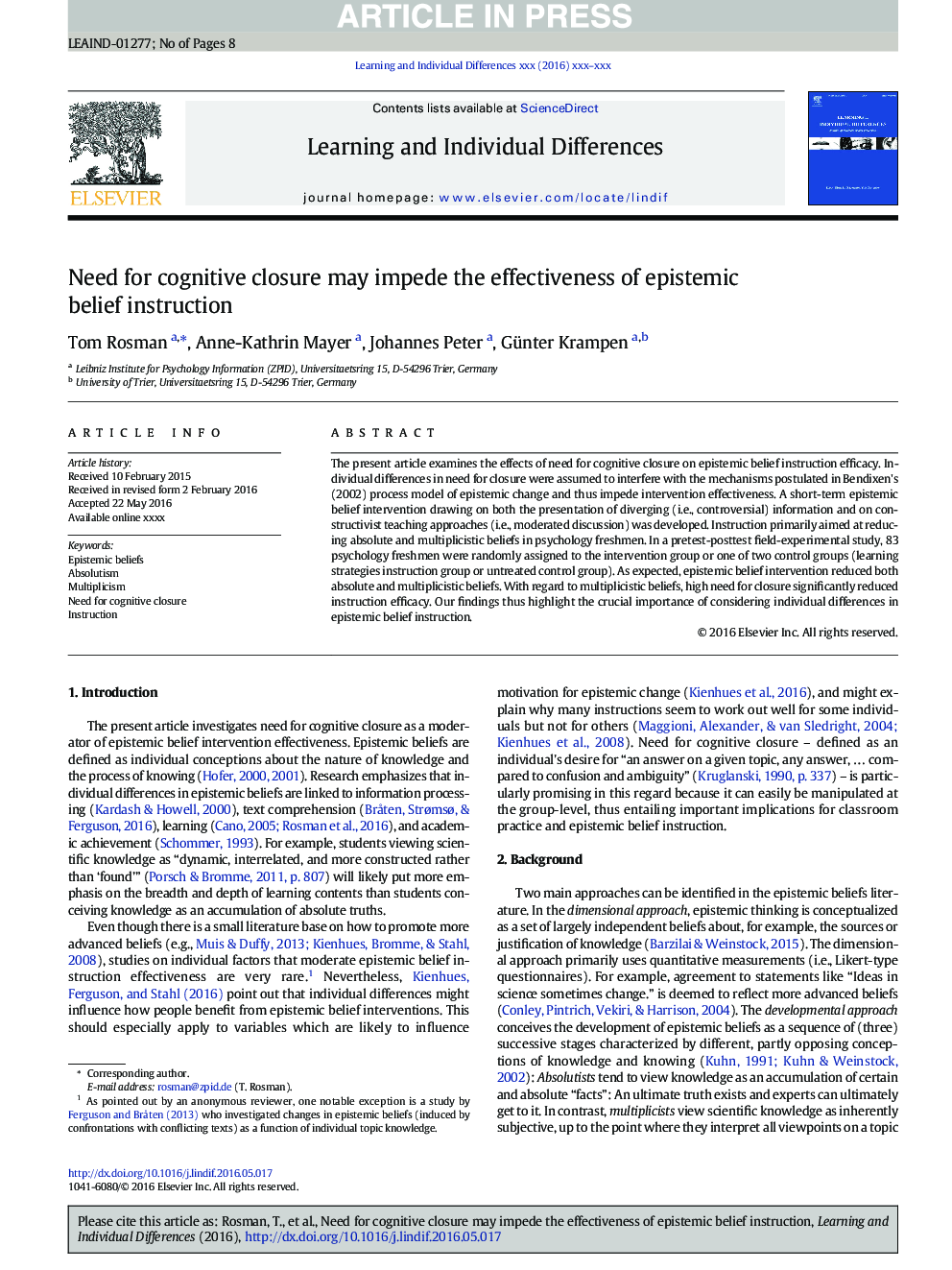| Article ID | Journal | Published Year | Pages | File Type |
|---|---|---|---|---|
| 6844831 | Learning and Individual Differences | 2016 | 8 Pages |
Abstract
The present article examines the effects of need for cognitive closure on epistemic belief instruction efficacy. Individual differences in need for closure were assumed to interfere with the mechanisms postulated in Bendixen's (2002) process model of epistemic change and thus impede intervention effectiveness. A short-term epistemic belief intervention drawing on both the presentation of diverging (i.e., controversial) information and on constructivist teaching approaches (i.e., moderated discussion) was developed. Instruction primarily aimed at reducing absolute and multiplicistic beliefs in psychology freshmen. In a pretest-posttest field-experimental study, 83 psychology freshmen were randomly assigned to the intervention group or one of two control groups (learning strategies instruction group or untreated control group). As expected, epistemic belief intervention reduced both absolute and multiplicistic beliefs. With regard to multiplicistic beliefs, high need for closure significantly reduced instruction efficacy. Our findings thus highlight the crucial importance of considering individual differences in epistemic belief instruction.
Related Topics
Social Sciences and Humanities
Psychology
Developmental and Educational Psychology
Authors
Tom Rosman, Anne-Kathrin Mayer, Johannes Peter, Günter Krampen,
